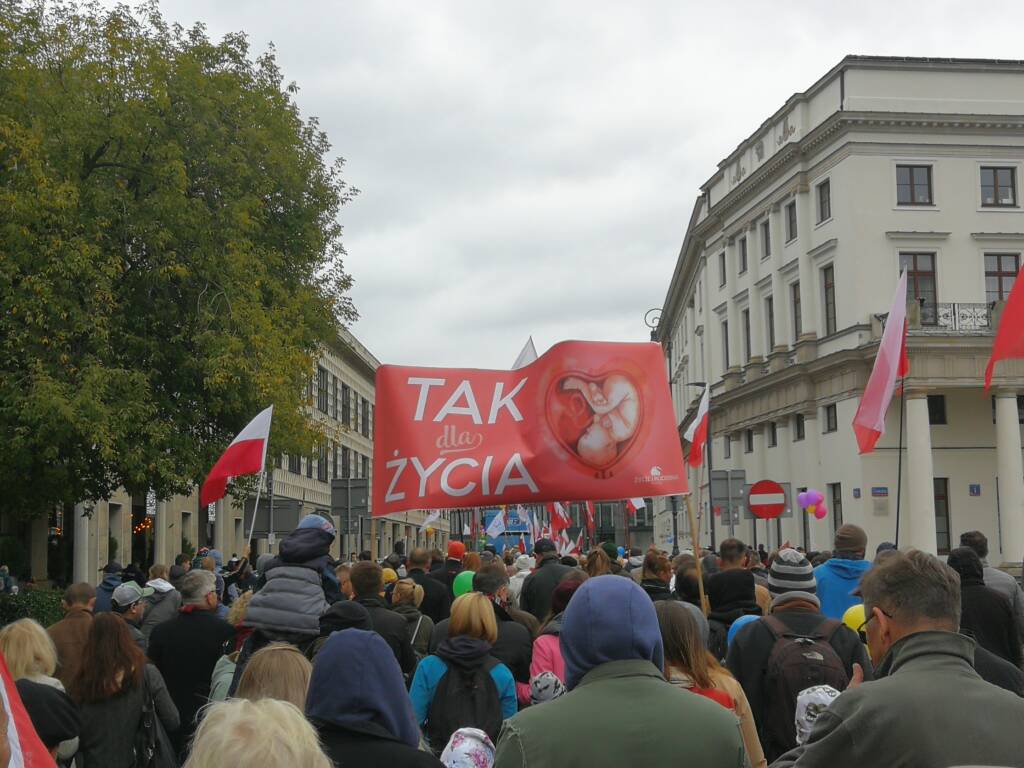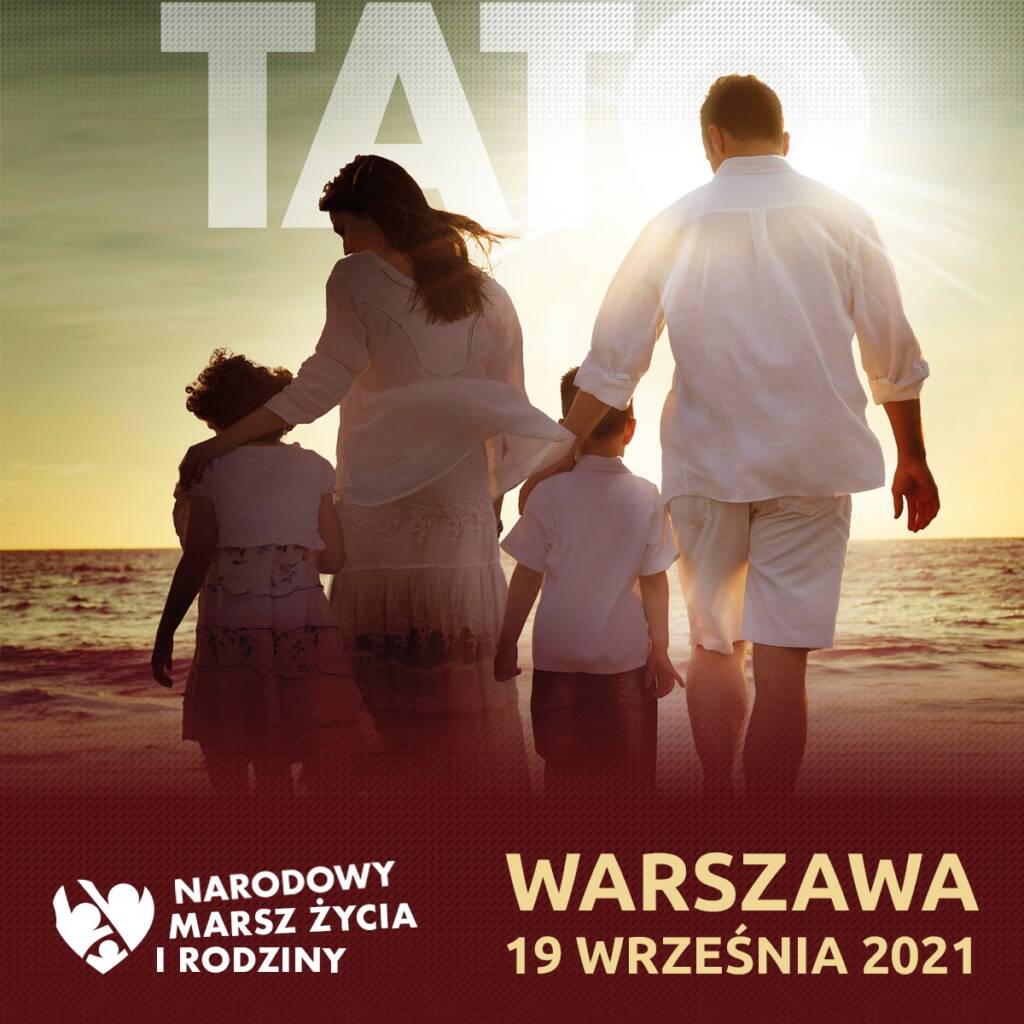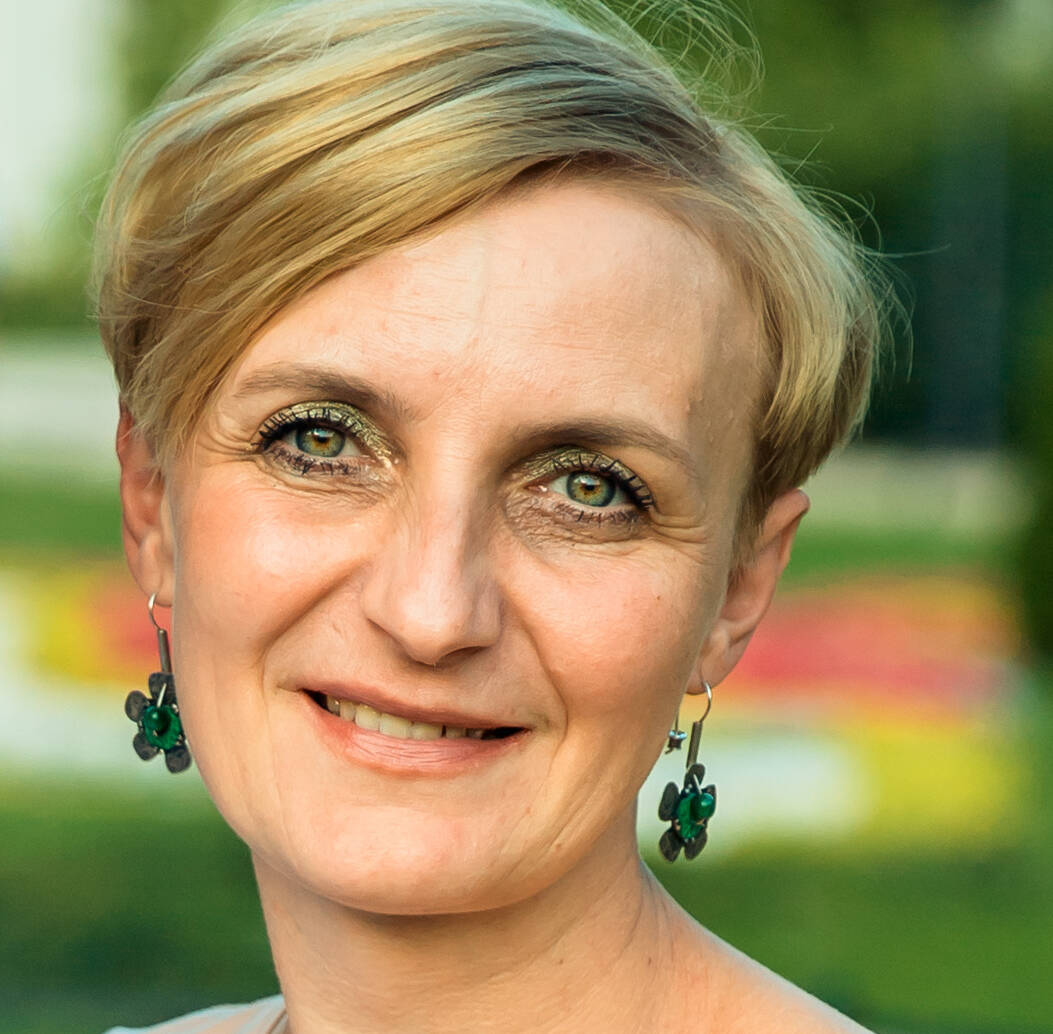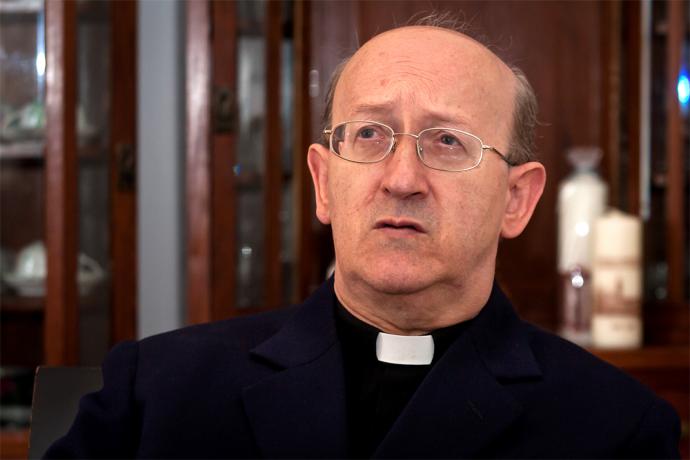Poland – On Sunday, 19 September, the streets of Warsaw’s historic centre were filled with those taking part in the March for Life and Family. This was the event’s sixteenth consecutive year. Last year, such marches took place simultaneously in 140 Polish cities, but this year, due to the pandemic, the demonstration was held only in the capital. The slogan of this edition of the march was “Daddy, be with me, lead me, protect me”, and the organisers paid special tribute to Cardinal Stefan Wyszyński, who had been proclaimed blessed a week earlier. The man nicknamed Primate of the Millennium by the Poles was known for his commitment to the defence of marriage and the family, as well as for his opposition to abortion, which had been legalised and made commonplace by the Communists, on the model of what is practised today in several Western European countries, not least in France and Great Britain, which have by far the highest number of abortions among European countries, after Russia.
Organisers from the Centre for Life and Family (Centrum Życiai Rodziny) and the Christian Social Congress (Chrześcijański Kongres Społeczny) were welcomed before the event by President Andrzej Duda, who had already joined the march as an ordinary participant last year. The initiative was also supported by many conservative media and Catholic organisations, journalists, sports stars, actors and priests. The participants were greeted on Twitter by the president of the Polish Bishops’ Conference, Archbishop Stanisław Gądecki, and the march was followed by a mass celebrated at the Church of the Holy Cross on Krakowskie Przedmieście Street, not far from the presidential palace. Many public figures known for their pro-life views joined the families’ procession, including children’s rights ombudsman Mikołaj Pawlak, nationalist MPs Robert Winnicki and Krzysztof Bosak from the Confederation (Konfederacja) group, and also deputy climate minister Jacek Ozdoba from Solidarna Polska, the party of Justice Minister Zbigniew Ziobro, which is part of the PiS-led United Right governing coalition. PiS itself was not represented at the 19 September march, at least not officially.
Ulice Warszawy pełne uśmiechniętych i szczęśliwych rodzin! Dziękujemy, że jesteście z nami! ♥️🤩 pic.twitter.com/KSwPIbwoly
— Paweł Ozdoba (@PawelOzdoba) September 19, 2021
https://twitter.com/PawelOzdoba/status/1439531598295207936
“The streets of Warsaw full of smiling and happy families! Thank you for being with us! ”
One might wonder whether it is still necessary today in Poland to demonstrate against abortion and to fight for the protection of the privileged position of marriage and the family. After all, last year Polish pro-life movements were able to celebrate a huge success for the right to life: after a long battle, the Constitutional Tribunal made eugenic abortion illegal and abortion is now allowed in Poland only if the pregnancy is the result of rape or if it endangers the life or physical health of the pregnant woman. In addition, between 2019 and 2020, dozens of local authorities, among them several voivodships (provinces), adopted a Local Government Charter of the Rights of the Family (which had been drafted by the Ordo Iuris Institute, a pro-life and pro-family lawyers’ association), with proposals to support marriage and families at the local level, and many others adopted declarations promising not to promote LGBT ideology.
However, pro-family and pro-life Poles are well aware that the battle is far from won for them. Thus, despite the ban, abortion vendors and pro-abortion activists advertise their services (which usually involve travel abroad or abortion pills being sent by post) in the public space without being bothered by the police and prosecutors. The climate of impunity in this area is almost total, since the government of Mateusz Morawiecki, like previous governments, refuses to react. As far as the family is concerned, the European Parliament, with its resolution of 14 September on the recognition of “gay marriages” in all EU Member States, is once again seeking to impose another family model on the country of Saint John Paul II. In addition, the European Commission is increasingly pushing for its new “LGBTIQ Equality Strategy” and it is threatening to withhold EU funds from Poland through the “rule of law” mechanism or to suspend funding to regions that have adopted resolutions that do not conform to the progressive thinking that predominates in Brussels. As a result, some Polish voivodships, such as Małopolska (Lesser Poland) and Świętokrzyskie, are abandoning their previous commitments to the protection and promotion of the family to avoid losing important funding.
Last week, Justice Minister Zbigniew Ziobro called the European Commission’s ideological blackmail “economic terrorism” while, at the same time, the LGBT+ charters adopted in cities such as Warsaw and Gdańsk, to which the Charter for the Rights of the Family and the declarations against LGBT ideology adopted by local authorities were a response, remain in place and are not subject to any pressure from EU institutions. Yet the LGBT+ Declaration signed in early 2019 by Warsaw Mayor Rafał Trzaskowski, for example, plans to impose the promotion of LGBT ideology in schools, including by bringing in members of LGBT lobby associations and through the enforcement of the very controversial WHO’s Standards for Sexuality Education in Europe, while the EU Charter of Fundamental Rights confirms parents’ right to raise their children according to their beliefs. The Warsaw LGBT+ Declaration also provides, in violation of EU free competition rules, that companies wishing to work for the municipality must have an internal policy promoting LGBT attitudes and ideas.

The objectives of the March for Life and Family were expressed by Robert Bąkiewicz, one of the leaders of the National Movement and organiser of another popular event in Poland, the Independence March. At the end of the demonstration he addressed the crowd:
“We are gathered here to protect Polish children, to give them the right to be born (…), to protect Polish children who are subjected to a depraving ideology, which is unfortunately present in our schools (…). It is unacceptable that the natural order and the law of the Polish state are being undermined and attacked by the European Parliament, while the Polish Parliament remains silent (…) It is unacceptable that extremist groups promote and justify abortion-related crime, while the Attorney General [Minister of Justice] pretends not to see the incitement to crime. It is unacceptable that the parliamentary committees that were supposed to discuss the citizen’s bill on the denunciation of the Istanbul Convention, with its gender ideology, have not been able to meet for over six months. This is simply unacceptable! ”





